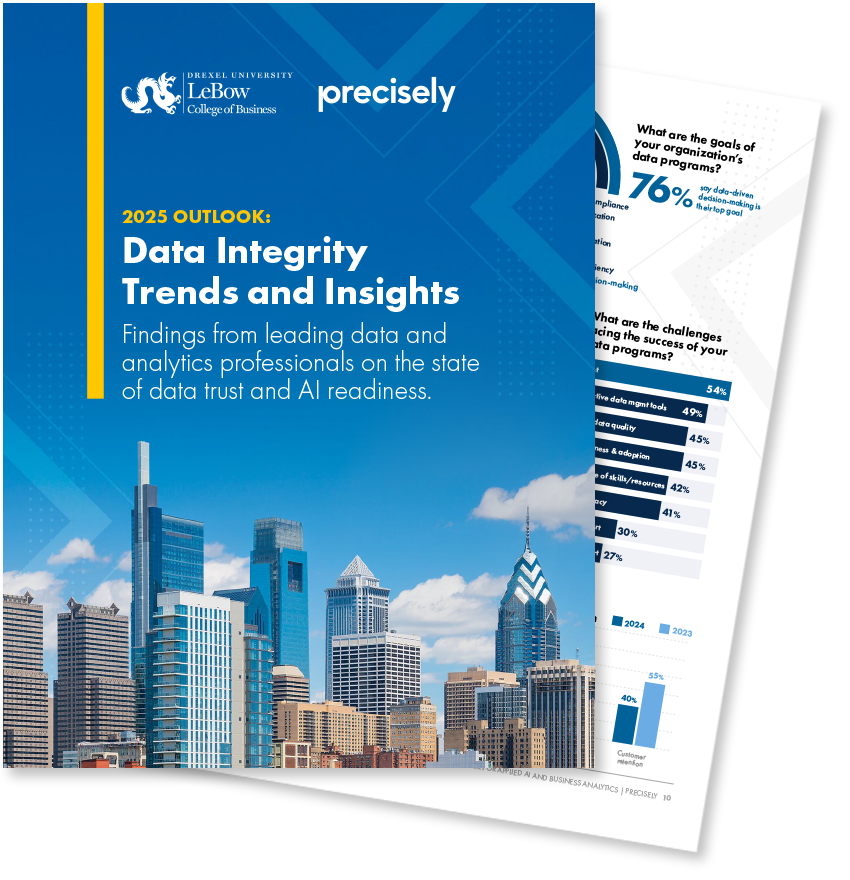
2025 Planning Insights: The Rise of AI is Hampered by a Lack of Data Readiness

Key Takeaways:
- Only 12% of organizations report their data is of sufficient quality and accessibility for AI.
- Data analysis (57%) is the top-cited reason organizations are considering the use of AI.
- The top data challenge inhibiting the progress of AI initiatives is data governance (62%).
The 2025 Outlook: Data Integrity Trends and Insights report is here!
What are the latest data integrity trends you need to know about? How does your data program compare to your peers? Find out in the report, published in partnership between Precisely and Drexel University’s LeBow College of Business.
This year’s report is filled with actionable strategic insights from over 550 leading data and analytics professionals worldwide. Respondents were asked about their organizations’ data strategies, priorities, and challenges as they navigate a period of rapid transformation – and the full report is going to be an essential resource as you plan your 2025 data strategy.
One major finding is that artificial intelligence (AI) is one of the most influential technology trends impacting organizations’ data programs. However, only 12% of organizations report that their data is of sufficient quality and accessibility for AI.
Let’s explore more of the report’s findings around AI readiness and the data challenges facing organizations. Stay tuned for future posts in our 2025 Planning Insights series, where we’ll feature even more takeaways from the report!
AI Use is on the Rise – But Organizational Readiness is Low
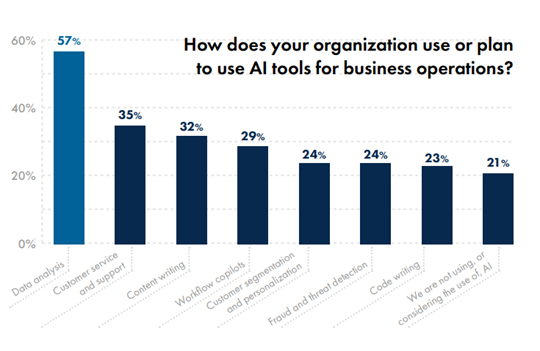
Businesses are increasingly using AI, driven by the rise of generative AI in 2023. In our 2024 survey, the number one reason organizations are considering AI is for data analysis – with more than half of respondents (57%) saying they’re using or plan to use AI for this purpose. They’re also using AI, or planning to use it, for:
- customer service and support (35%)
- content writing (32%)
- workflow copilots (29%)
- fraud and threat detection (24%)
- customer segmentation and personalization (24%)
- code writing (23%)
As expected, these uses of AI contribute to improved decision-making, organizational efficiency, and cost reduction, which are the top three data program goals cited by respondents overall in this year’s survey.
Many aspects of organizational readiness are essential for AI success, and the survey reveals that AI readiness is low across all critical factors. Global respondents report being “unprepared” in key areas:
- employee skills and training (60%)
- financial resources (54%)
- business strategy alignment (47%)
- technical infrastructure (47%)
- data quality and accessibility (46%)
- governance of legal, privacy, and security policies (42%)
- organizational culture and support (41%)
Overall, organizational readiness for AI across international organizations is very low (17%) – even lower than in the US (20%). This may be due to variations in the international regulatory landscape compared to the US, as businesses in Europe and Asia Pacific work to stay compliant with evolving regulations.
2025 Outlook: Essential Data Integrity Insights
What’s trending in trusted data and AI readiness for 2025? The results are in!
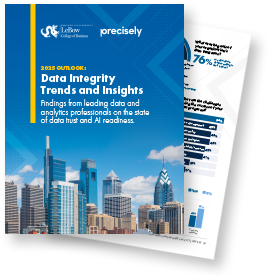
Only 12% of Organizations Have AI-Ready Data
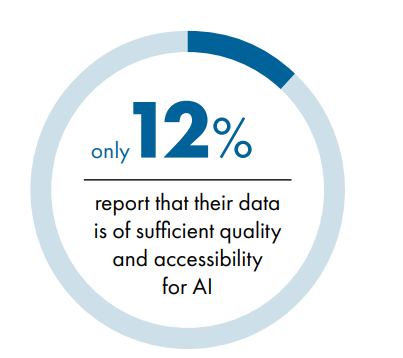
Data readiness is essential to overall organizational readiness for AI – and yet, only 12% of respondents report that their data is of sufficient quality and accessibility for AI.
What’s causing this gap in data readiness? The top data challenge reported is a lack of data governance (62%).
This comes as no surprise, given the role data governance programs play in managing how data is used – including where it’s stored, its lineage, who has access to it, and whether it has personally identifiable information (PII) attributes, among other factors.
Beyond governance, respondents highlighted other roadblocks as their top data challenge inhibiting progress in relation to AI initiatives, including:
- the availability of data attributes to increase the relevance of AI outcomes (54%)
- the quality of data used for AI training and inference (52%)
- data privacy and security (50%)
- lack of access to the data required to prevent bias (41%)
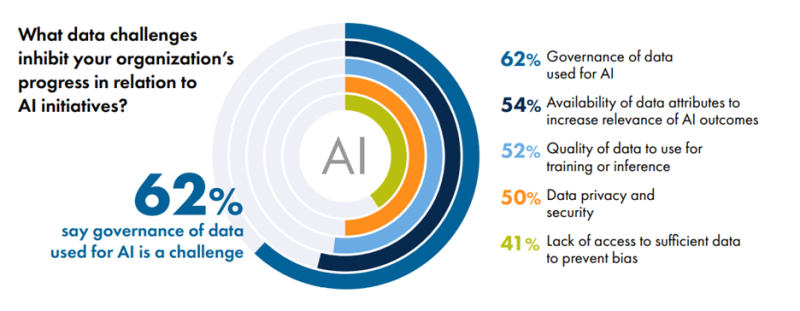
These findings highlight the critical need for robust data governance and quality programs to unlock the full potential of AI. If these foundational issues go unaddressed, organizations will struggle to effectively implement AI and realize its transformative impact.
Elevate Your 2025 Data Strategy
How does your data program and level of AI readiness compare to your peers’? Do you have the data integrity needed to achieve and exceed your business goals? Get all the insights and inspiration you need for a winning data strategy in the 2025 Outlook: Data Integrity Trends and Insights report.
And, stay tuned for the next 2025 Planning Insights blog to explore more report highlights!
